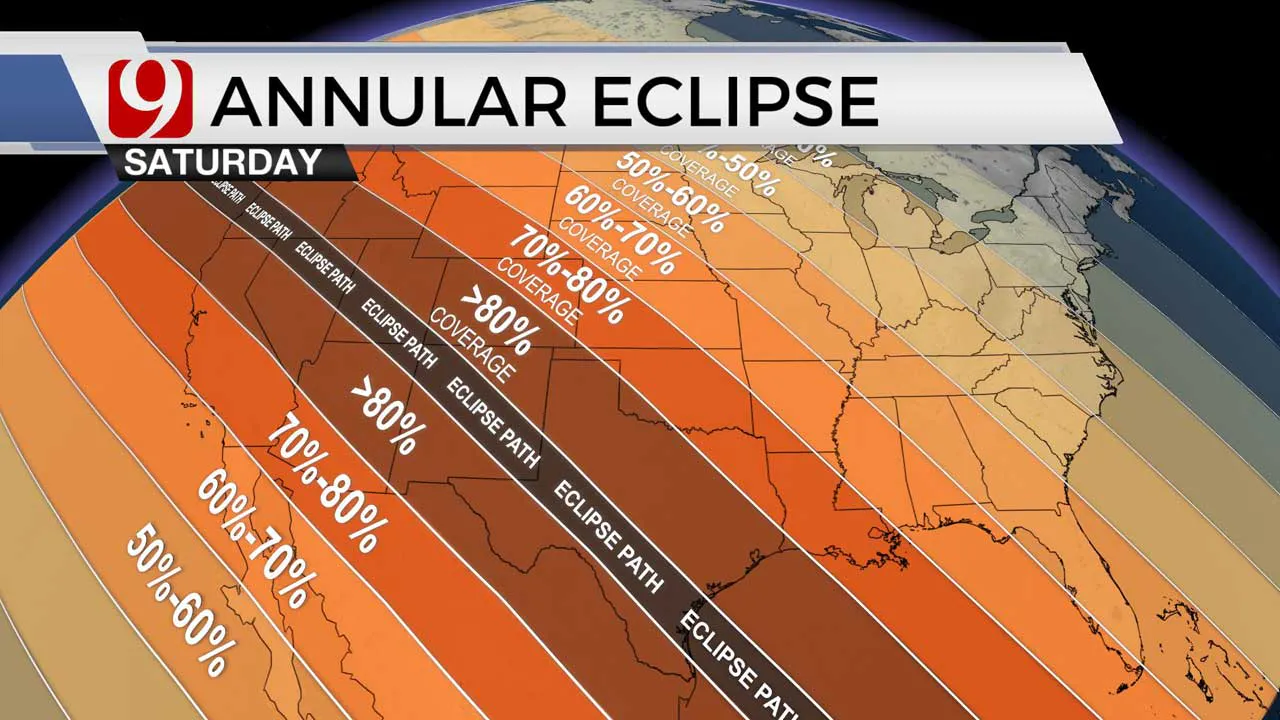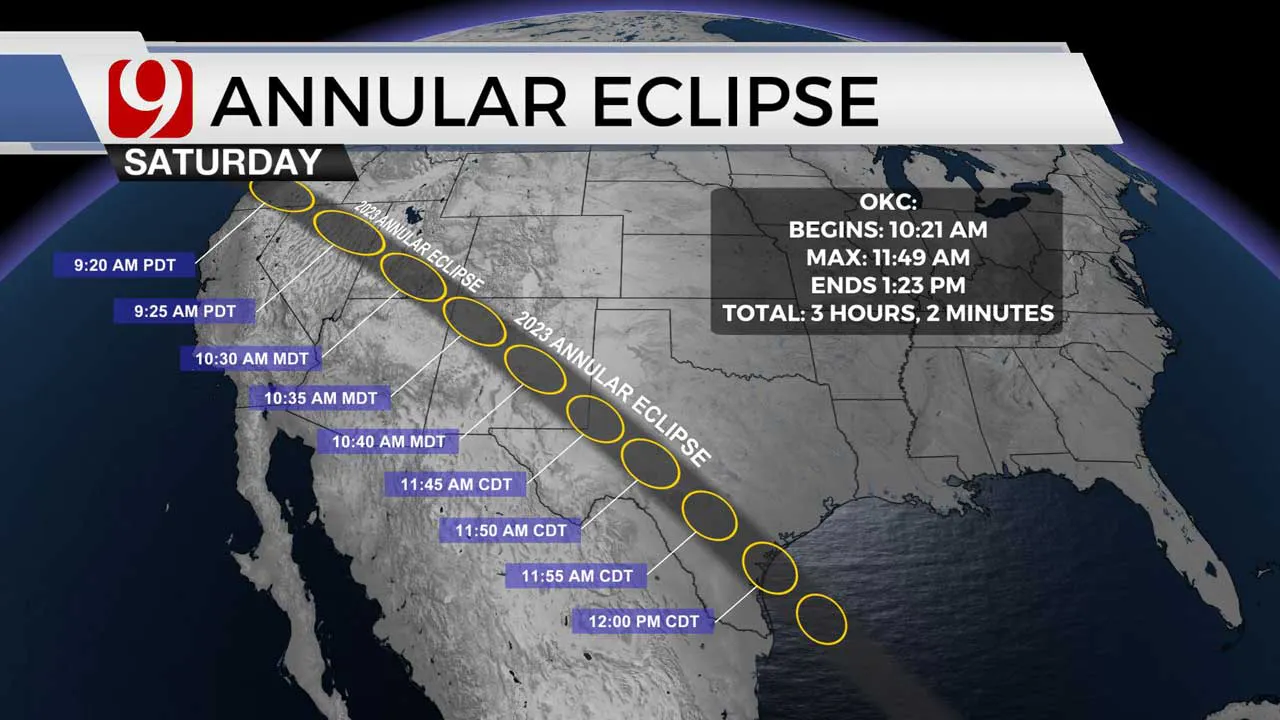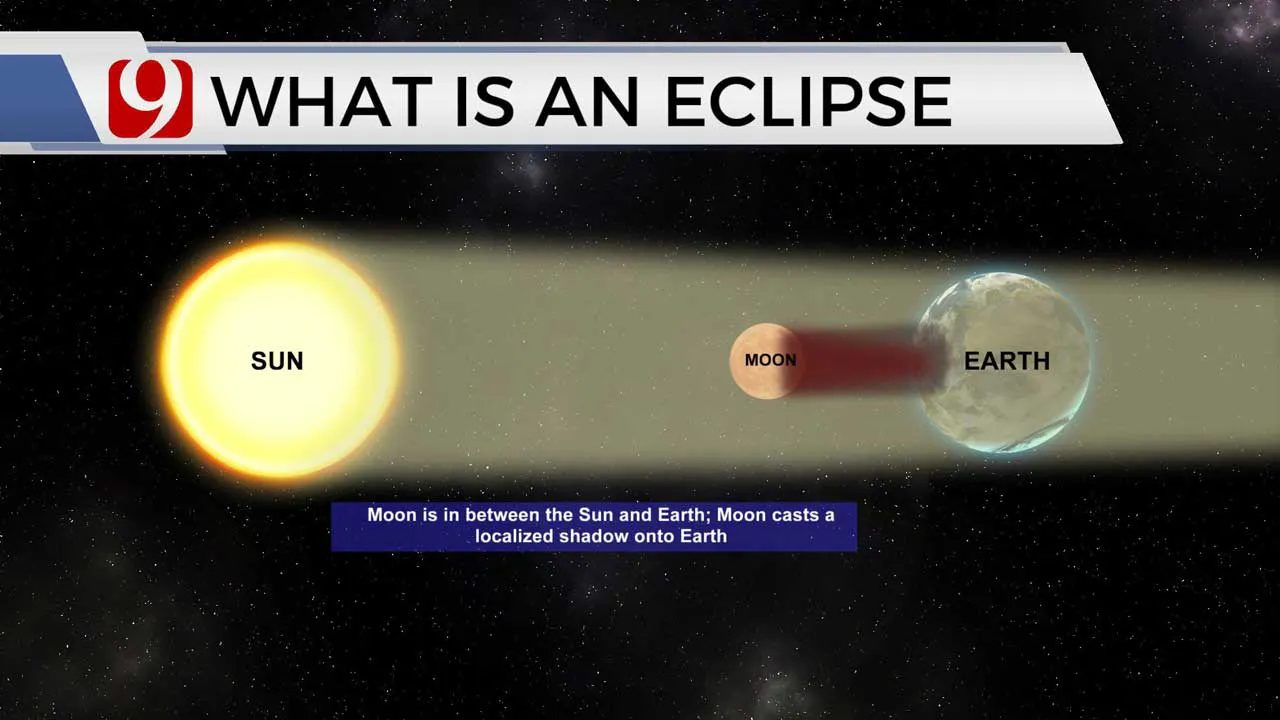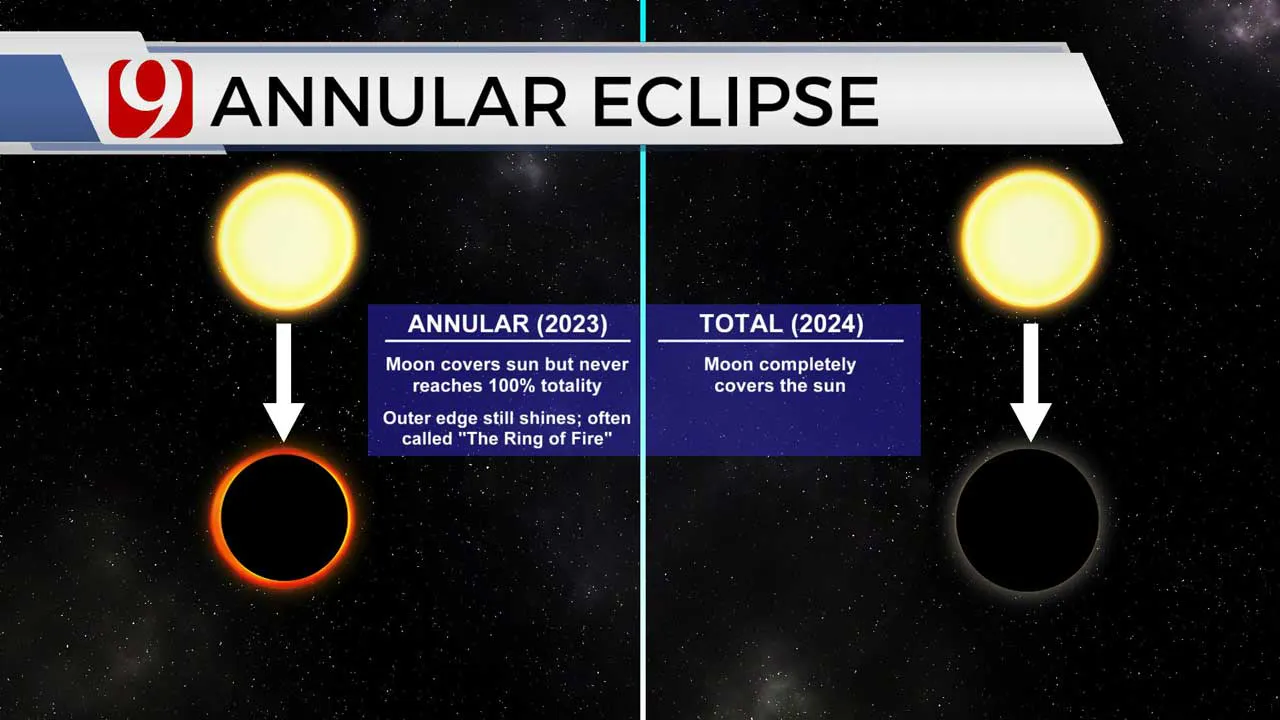Partial Solar Eclipse Visible In Oklahoma This Weekend
Learn how to safely view an eclipse this weekend.Saturday, October 14th 2023, 9:04 am
A solar eclipse is happening this Saturday, Oct. 14. Although Oklahoma is not in its direct path, the eclipse is going to be 70-80 percent visible.
The eclipse should last from 9 a.m. in Oregon until 12 p.m. in Texas.


What Is A Solar Eclipse?
A solar eclipse is when the moon passes between the earth and the sun, temporarily blocking sunlight and casting a shadow onto the earth.

This weekend’s eclipse is an annular eclipse, according to CNN. An annular eclipse creates the ‘ring of fire’ effect, where the moon moves into the center of the sun, blocking all but the outer edge of light.

Why You Shouldn’t Look Directly At An Eclipse
Because the sun is not completely blocked by the moon during an annular eclipse, looking directly at the eclipse could harm your eyes.
“Exposing your eyes to the sun without proper eye protection during a solar eclipse can cause “eclipse blindness” or retinal burns, also known as solar retinopathy. This exposure to the light can cause damage or even destroy cells in the retina (the back of the eye) that transmit what you see to the brain,” Prevent Blindness says.
How To Safely View An Eclipse
Many people use eclipse glasses or solar viewers, which are thousands of times darker than regular sunglasses, according to NASA. Eclipse glasses or solar viewers should be ISO 12312-2 compliant, view more about this here. Some Metro libraries are handing out free solar eclipse glasses, while supplies last.
Welder’s glass and mylar filters are also dark enough to safely view an eclipse through, according to Prevent Blindness.
You can also view the solar eclipse indirectly. Many people recommend pinhole projections or pinhole viewers, which are pieces of paper or cardboard that have a hole in them that cast a shadow of the eclipse. This effect is also easy to spot in tree leaves.
More Like This
October 14th, 2023
January 10th, 2025
October 31st, 2024
October 31st, 2024
Top Headlines
April 19th, 2025










